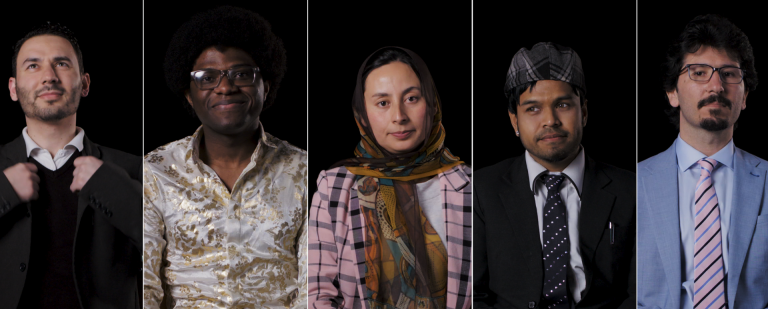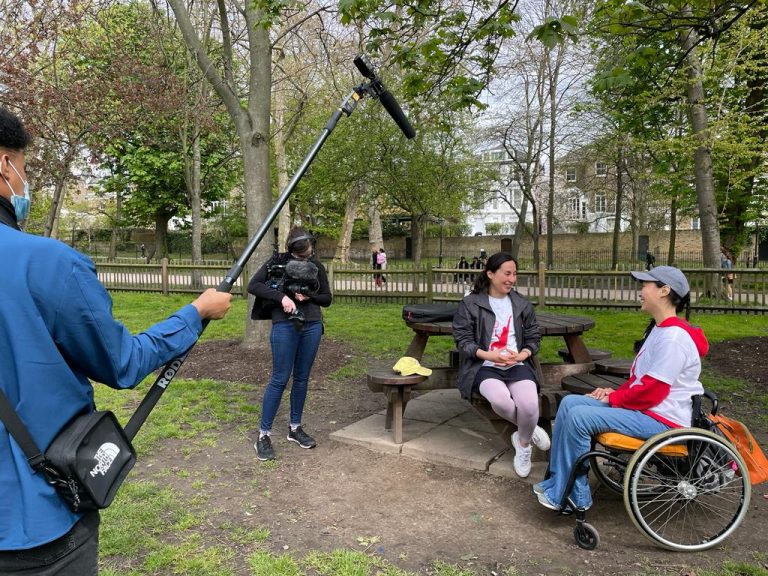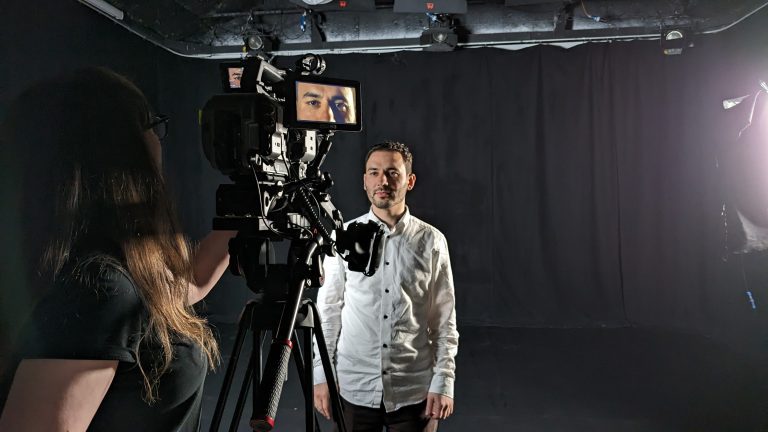Sam Forsdike is the producer and director of the documentary, My (Refugee) Life. He worked alongside executive producer Rich Bentley and a trainee crew to bring the stories of five refugees to life.
I’ve always been interested in telling stories that shine a light on issues people might not know about, open new ways of understanding a subject, and give a voice to people who otherwise might not be heard.
Rich and I both worked in broadcast television and set up Postcard Productions with the aim of using that experience to make content that could bring untold stories to new audiences while also engaging with real social change.
A couple of years ago we set up the Postcard Foundation to build and deliver real impact on and off-screen through our work. In 2022, we ran a trainee scheme for young homeless people giving them the opportunity to shadow our film crew’s location and edit. They were also given a dedicated mentor to work with to support them in creating and producing a short film of their own. It was a successful project that staff and trainees enjoyed and brought new ideas to our filmmaking.
We set up the trainee programme on My (Refugee) Life to provide editorial richness and sensitivity in the making of the documentary and facilitate supportive placements for new people to work and learn in the film industry.
When making a film centered on refugees and their experience in the UK it was integral that our team included people with knowledge and understanding of this. With a trainee crew of refugees, we could shape both how we told the story and how we worked with our contributors on and off the screen.
We created the trainee programme to replicate our own staffing model for the documentary so that this would be an authentic experience for all the trainees. Whilst all the trainees and staff worked together collaboratively, each trainee had a dedicated role and time with their individual Postcard mentor to develop their skills in this position. Some of these involved more technical work, like the Camera Assistant, whilst others were more narrative focuses, such as the Director, which leant into each trainee’s particular development goals.
At our weekly editorial meetings, the trainees would provide detailed and thoughtful comments on castings, scripts, storyline development, and visuals which continually developed the film across all levels. We loved being challenged- to help us reflect on our own processes but also see the trainees feel comfortable and confident in expressing themselves and their opinions.
The trainees came from a wide background of professional experience; however, they all share the same desire for learning and care for everyone on and off camera that made this one of the most joyous films to work on and best teams to be part of.
Whilst we were shooting the documentary, we were also making a behind-the-scenes film, which we were keen for the trainees to shoot, produce, direct and edit. On one of the shoot days I had just finished filming a scene and felt a nudge on my shoulder from the trainees asking if they could do some behind-the-scenes filming with me. Whilst the experience of having the camera turned on me was not one I relished, it was fantastic to see how professionals, confident and thoughtful they were in undertaking this filming and implementing the learning they had gained from this placement.
We cannot recommend enough for other organizations to run their own training programmes.
Our advice would be to ensure that there is time and space built into a training programme for participants to be able to ask questions and reflect on their learnings and experience. Each staff member held a short weekly 1-2-1 catch-up with their trainee to check-in with them away from the requirements of their role and the project. These often-opened conversations about things they had not been sure of (sometimes a piece of jargon or acronym) or share reflections they’d had on new ideas for things we could include or do differently in their next piece of work. This enabled us to continually evolve the placements in a way that enabled each trainee to have the personalised space and support that resulted in them being able to give their best contributions.
I hope that this film helps remind viewers that every refugee, every migrant, every person moving from one country to another is an individual with their own story and set of circumstances. Too often refugees are referred to collectively when each person needs to be recognised in their own right. We also hope that this film shows people are not defined just by where they have come from and been through but also what they can do and their dreams for the future.




